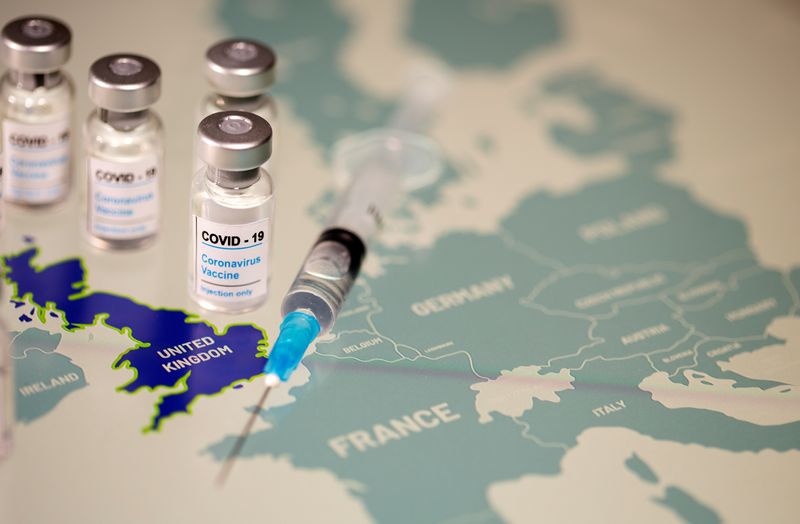LONDON (Reuters) - People's willingness to get vaccinated against COVID-19 is rising around the world and more than half of those questioned said they would take the shot if it were offered next week, an updated survey of global vaccine confidence found on Thursday.
But attitudes and confidence vary widely in the 15 countries covered in the survey, with France showing high levels of scepticism and some Asian countries showing declining trust in vaccines, while some European nations see rising confidence.
Overall, vaccine confidence is higher than in November, when the same survey - conducted in 15 countries and covering 13,500 people each time - found that only 40% would be willing to get vaccinated.
The survey, co-led by YouGov and Imperial College London’s Institute of Global Health Innovation (IGHI), found that people in Britain were the most willing to have a COVID-19 vaccine, at 78%, followed by Denmark at 67%.
France had the highest proportion of respondents who said they would not take a vaccine, at 44%, but saw a doubling in the proportion who strongly agreed that they would take a vaccine, from 15% in November to 30% in January.
In Australia, Japan, South Korea and Singapore, willingness to take a vaccine has dropped off since November, with Japan showing the least preparedness, followed by Singapore.
"As vaccines will play a vital role in controlling the pandemic, leaders must act now to help more people understand the benefits of being vaccinated against COVID-19 and make sure that no one is left behind," said David Nabarro, the IGHI's co-director and a World Health Organization expert on COVID-19.
The survey is part of efforts by the WHO and other bodies to monitor health-related behaviour and attitudes during the pandemic.
Since April 2020 researchers have surveyed more 470,000 people worldwide. This most recent survey ran from Jan. 4-24.

It found that most people trust vaccines, with two-thirds expressing strong or moderate confidence and only 12% reporting no trust at all. It also found that two-thirds of people believe getting vaccinated is important for their health.